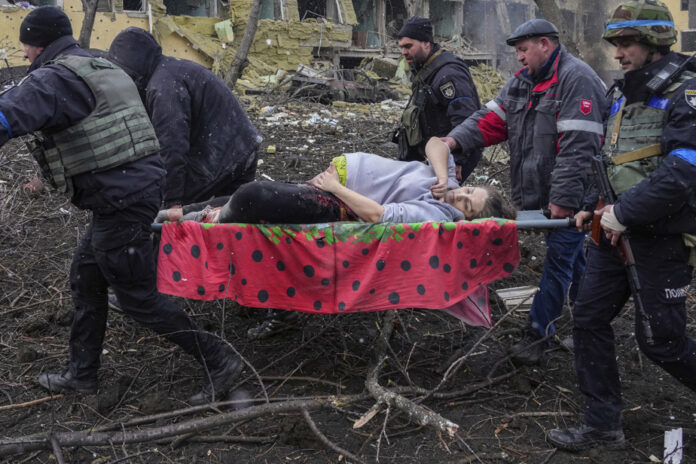(The Hague) Feeling her rounded lower belly as she was evacuated, injured, from the devastated maternity hospital in Mariupol, Iryna Kalinina, pale-faced, struggles. The image, highlighting “the murder of future generations of Ukrainians”, won the World Press Photo’s top prize on Thursday.
“Miron”, who got his name from the word “peace”, was stillborn as a result of the Russian airstrike, almost two weeks after the start of the invasion of Ukraine. Half an hour later, his mother, aged just 32, also died.
His photo taken by Evgeniy Maloletka of The Associated Press (AP) “captures the absurdity and horror of war” and “sheds light on the murder of future generations of Ukrainians”, said the jury of the most prestigious contest of photojournalism.
The Ukrainian, who was one of the few photographers to document the siege there, said he drove to the hospital soon after a projectile hit him and saw volunteer rescuers carrying a woman on a stretcher .
“For me, this image is the image I want to forget. But I couldn’t,” Maloletka said in a video posted on the World Press Photo website.
“Hopefully all the work we’ve done will somehow help people understand. Maybe it will be used in a case against Russian war crimes,” he added.
A symbol of Ukrainian resistance, the port city of Mariupol, in southeastern Ukraine, was besieged and bombarded for long weeks by Russian forces at the start of the invasion.
The strike on the hospital on March 9, 2022, which left three dead and some 17 injured, immediately sparked condemnations around the world.
Mariupol finally fell in May 2022 after fierce resistance. According to Kyiv, it was 90% destroyed and at least 20,000 people died there. The European Union had called its siege a “major war crime”.
The World Press Photo has also awarded the “Story of the Year” award the “Afghan Peace Prize”, a series of nine photos by Mads Nissen, awarded in 2021 for the photo of an embrace during the coronavirus pandemic. COVID-19.
This Danish photographer hopes to spark, beyond awareness, “engagement with the millions of Afghans who desperately need food and humanitarian aid right now.”
The ‘Long Term’ Project Award went to Armenian photographer Anush Babajanyan who shed light on the impacts of poor water management after the end of the Soviet Union in Kazakhstan, Uzbekistan, Kyrgyzstan, and Kyrgyzstan. Tajikistan, aggravated by the climate crisis.
As for the Egyptian, Mohamed Mahdy, he was rewarded for his images of a fishing village in danger of disappearing.
The photographers’ work will be exhibited from April 22 in Amsterdam, where the foundation is based, before being shown around the world.















